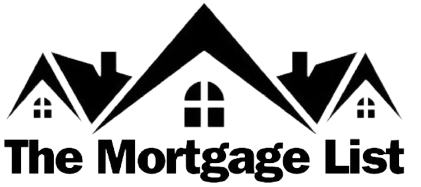Introduction How to Locate the Greatest Mortgage Rate
In the vast landscape of mortgage options, finding the right rate can be akin to searching for a needle in a haystack. However, securing the best mortgage rate is crucial as it can save you thousands of dollars over the life of your loan. This comprehensive guide is designed to equip you with the knowledge and strategies needed to navigate the complexities of mortgage rates effectively.
Understanding Mortgage Rates
Navigating the world of mortgage rates can be complex, but having a solid grasp of the fundamentals is crucial for making informed decisions about your home financing. Here’s a breakdown of what mortgage rates entail:
What Are Mortgage Rates? Mortgage rates refer to the interest charged by lenders on mortgage loans. They represent the cost of borrowing money to finance the purchase of a home. Mortgage rates are typically expressed as a percentage of the loan amount and can have a significant impact on the overall cost of homeownership.
Factors Influencing Mortgage Rates Several factors influence mortgage rates, including:
- Economic Indicators: Mortgage rates are closely tied to economic indicators such as inflation, economic growth, and employment rates. Strong economic conditions often lead to higher mortgage rates, while economic downturns may result in lower rates to stimulate borrowing and spending.
- Federal Reserve Policy: The Federal Reserve plays a crucial role in determining short-term interest rates through monetary policy decisions. Changes in the federal funds rate can indirectly influence mortgage rates, particularly for adjustable-rate mortgages (ARMs).
- Market Conditions: Mortgage rates can also be influenced by supply and demand dynamics in the financial markets. Investor demand for mortgage-backed securities (MBS), which are used to fund mortgage loans, can impact mortgage rates.
- Borrower Risk Profile: Lenders assess the risk associated with each borrower when determining mortgage rates. Factors such as credit score, loan-to-value ratio, and debt-to-income ratio can affect the interest rate offered to individual borrowers.

How to locate the greatest mortgage rate: A tips-to for locating the best deal
Implications of Mortgage Rates The mortgage rate you secure can have significant financial implications over the life of your loan. Even seemingly small differences in interest rates can translate into substantial savings or costs over time. It’s essential to shop around for the best rate and consider the long-term impact on your financial health.
Researching Mortgage Rates
To locate the greatest mortgage rate, thorough research is paramount. Online tools such as mortgage rate calculators and comparison websites can provide valuable insights into current rate trends. Additionally, consulting with financial experts, such as mortgage brokers or loan officers, can offer personalized guidance tailored to your financial situation.
Comparing Mortgage Offers
Once you’ve gathered information on various mortgage rates, it’s time to compare offers. Pay close attention to factors such as interest rates, loan terms, and closing costs. Be sure to scrutinize the fine print to avoid any hidden fees or unfavorable terms that could impact the overall cost of your loan.
Negotiating for Better Rates
In order to obtain a better rate, don’t be scared to haggle with lenders. Equipped with a strong credit score and thorough research, you may use your position to negotiate better conditions. Be ready to counter offers and show lenders that you are a creditworthy borrower.
Factors Affecting Mortgage Rates
Several external factors can influence mortgage rates, including changes in the economy and government policies. Keeping abreast of economic indicators such as inflation rates and unemployment figures can provide insights into future rate movements.

Tips for Securing Low Rates
Securing a low mortgage rate is a top priority for many homebuyers, as it can result in substantial savings over the life of the loan. Here are some tips to help you secure the lowest possible rate on your mortgage:
1. Improve Your Credit Score: Credit scores are used by lenders to evaluate the risk of making loans to borrowers. Generally speaking, a lower interest rate corresponds with a higher credit score. Paying your bills on time, cutting debt, and fixing any mistakes on your credit record are all ways to raise your credit score.
2. Save for a Larger Down Payment: Making a larger down payment can lower your loan-to-value ratio (LTV) and reduce the lender’s risk, leading to a lower interest rate. Aim to save at least 20% of the home’s purchase price for the most favorable rates and to avoid private mortgage insurance (PMI) costs.
3. Shop Around: Refuse to accept the first mortgage offer you are presented with. To be sure you’re receiving the greatest bargain, shop around and check rates offered by different lenders. You may research your alternatives and get reasonable rates by using mortgage brokers and online comparison tools.
4. Consider a Shorter Loan Term: Interest rates are usually cheaper for loans with shorter maturities—such as 15 or 20 years—than for those with longer terms. Over the course of the loan, you will save a large amount of interest even if your monthly payments may be greater. Assess your spending plan and financial objectives to get the best loan duration for you.
5. Lock in Your Rate: Once you’ve found a favorable mortgage rate, consider locking it in to protect against potential rate increases while your loan application is processed. Rate locks typically last for 30 to 60 days, giving you time to finalize the loan details without worrying about fluctuations in interest rates.
6. Pay Discount Points: Consider paying discount points upfront to lower your interest rate. Each point typically costs 1% of the loan amount and can reduce the interest rate by a fraction of a percentage point. Calculate whether the long-term savings outweigh the upfront cost of paying points based on your financial situation.
7. Maintain Stable Employment and Income: Lenders prefer borrowers with stable employment and a consistent source of income. Demonstrating a history of steady employment and income can strengthen your loan application and improve your chances of securing a low rate.
8. Avoid Taking on New Debt: Avoid taking on new debt, such as car loans or credit card debt, before applying for a mortgage. Additional debt can increase your debt-to-income ratio (DTI) and may negatively impact your ability to qualify for the lowest rates.
By implementing these tips and taking a proactive approach to your mortgage search, you can increase your chances of securing the lowest possible rate and saving money over the life of your loan.

Common Mistakes to Avoid
When navigating the mortgage market, it’s crucial to steer clear of common pitfalls that could derail your rate-seeking efforts. Avoiding mistakes such as overlooking hidden fees, neglecting to consider long-term implications, and failing to shop around for the best deal can save you from costly errors.

